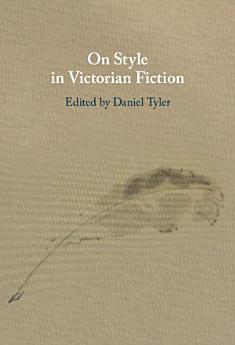On Style in Victorian Fiction
Daniel Tyler
ม.ค. 2022 · Cambridge University Press
eBook
329
หน้า
reportคะแนนและรีวิวไม่ได้รับการตรวจสอบยืนยัน ดูข้อมูลเพิ่มเติม
เกี่ยวกับ eBook เล่มนี้
Some writers of the Victorian period, as well as more recent critics, have argued that the prose style of Victorian fiction aims to efface itself or that an absence of style may in itself represent the nineteenth-century ideal. This collection provides a major assessment of style in Victorian fiction and demonstrates that style - the language, techniques and artistry of prose - is inseparable from meaning and that it is through the many resources of style that the full compass of meaning makes itself known. Leading scholars in the field present an engaging assessment of major Victorian novelists, illustrating how productive and illuminating close attention to literary style can be. Collectively, they build a fresh and nuanced understanding of how style functioned in the literature of the nineteenth century, and propose that the fiction of this era demands we think about what style does, as much as what style is.
เกี่ยวกับผู้แต่ง
Daniel Tyler is a Fellow and Lecturer in English at Trinity Hall, Cambridge. He has edited collections of essays including Dickens's Style (2013) and Poetry in the Making: Creativity and Composition in Victorian Poetic Drafts (2020).
ให้คะแนน eBook นี้
แสดงความเห็นของคุณให้เรารับรู้
ข้อมูลในการอ่าน
สมาร์ทโฟนและแท็บเล็ต
ติดตั้งแอป Google Play Books สำหรับ Android และ iPad/iPhone แอปจะซิงค์โดยอัตโนมัติกับบัญชีของคุณ และช่วยให้คุณอ่านแบบออนไลน์หรือออฟไลน์ได้ทุกที่
แล็ปท็อปและคอมพิวเตอร์
คุณฟังหนังสือเสียงที่ซื้อจาก Google Play โดยใช้เว็บเบราว์เซอร์ในคอมพิวเตอร์ได้
eReader และอุปกรณ์อื่นๆ
หากต้องการอ่านบนอุปกรณ์ e-ink เช่น Kobo eReader คุณจะต้องดาวน์โหลดและโอนไฟล์ไปยังอุปกรณ์ของคุณ โปรดทำตามวิธีการอย่างละเอียดในศูนย์ช่วยเหลือเพื่อโอนไฟล์ไปยัง eReader ที่รองรับ






